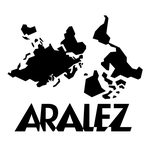In relation to Indigenous Liberation Day on the 12th of October we will start a triology of online series together with Indigenous diaspora, solidarity organizations, NGOs, artists and researchers. To kick-off this series we will look at the symbolic beginning of colonial capitalism which institutionalized slavery, genocide and ecocide. Specifically we will look at the meaning and impact of 1492, the year in which on the 12th of October Columbus arrived in the Americas/Abya Yala. How do we see the legacies and history of 1492 reproduced in today’s world? What are the obstacles for holistic and reparatory justice? And how can we respond to these challenges? In what way can decolonial thinkers reshape our understanding of history and the present? And How can we invite people to join a dialogue towards re-imagining decolonial futures? Towards a Century of Indigenous Liberation.




What is “decolonization?”. What the word means and what it requires have been contested for a century.

Koloniale standbeelden weghalen betekent niet dat de geschiedenis weggegomd wordt. Het is een actie om geschiedenissen en mensen die met geweld onderdrukt werden opnieuw zichtbaar te maken. Daarom is het ‘sorry’ van koning Filip een goede zaak, zegt historicus Sabelo Ndlovu-Gatsheni. Maar om de wereld te dekoloniseren tot een wereld van sociale rechtvaardigheid is véél meer nodig. Coalities van strijd, op de eerste plaats.

Esther Stanford-Xosei explaines 5 key principles in International Law surrounding reparatons on Panafrikanismus Kongress 2017

Decolonization once viewed as the formal process of handing over the instruments of government, is now recognized as a long-term process involving the bureaucratic, cultural, linguistic and psychological divesting of colonial power.







